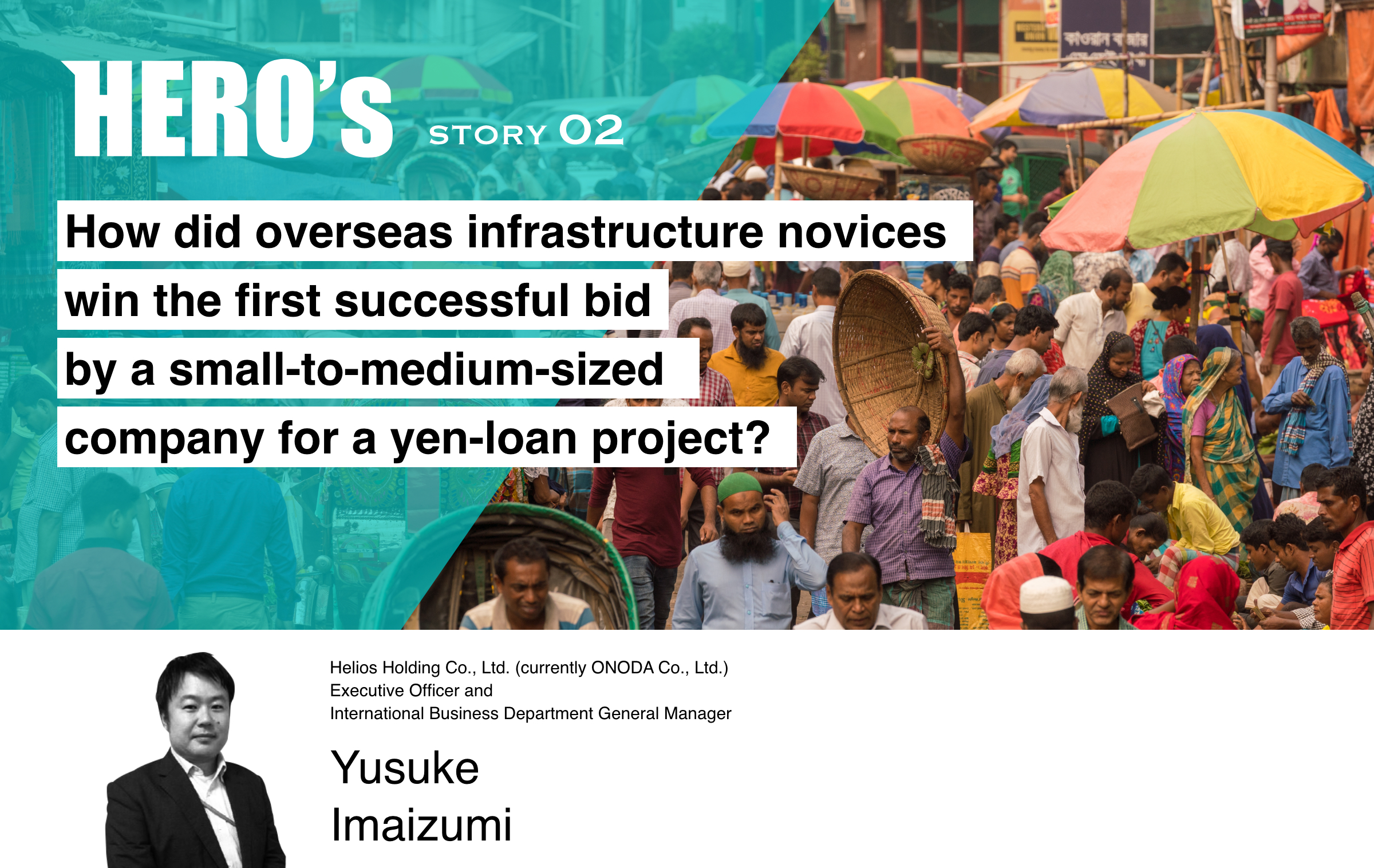In Bangladesh, domestic natural gas is used as the main energy source. However, gas usage fees in the country are charged at a flat rate, which results in waste, and in recent years, gas shortages have become a serious problem.
Helios Holding Co., Ltd. (currently ONODA Co., Ltd.) contributed to a 40% reduction in gas waste by introducing Bangladesh’s first ever pre-paid gas meters. How did a small-to-medium-sized wholesaler of towels and other soft goods in Japan receive an order for a yen loan project and make such an international contribution? Therein lies the story of a group of passionate businessmen who, through their unyielding faith, overcame adversities that would have caused anyone else to give up.
 Starting out with no one experienced in infrastructure projects
Starting out with no one experienced in infrastructure projects
Helios Holding received an order for a JICA promotion project in 2013 and a yen loan project in 2016, and is in charge of installing 260,000 pre-paid gas meters in Bangladesh. This marks the first time that a Japanese small-to-medium-sized company has ever received an order for a JICA (Japan International Cooperation Agency) yen loan project through international competitive bidding against major companies around the world. Our hero this time, Mr. Yusuke Imaizumi, stood at the forefront of this project together with Mr. Shigeyoshi Onoda, the president of the company.
“I joined the company just before we entered the overseas infrastructure business in earnest, and we were still planting business seeds in Bangladesh.” (Mr. Imaizumi)
Roughly ten years earlier, the company, which used to be a wholesaler of miscellaneous goods, had entered the overseas infrastructure business, a completely different industry. The catalyst was meeting Mr. Malik, who was coordinating technical interns from Bangladesh who had been accepted by the construction company run by Mr. Onoda’s father. Mr. Malik, who has a large circle of friends in Bangladesh, invited Mr. Onoda to visit. While in the country, Mr. Onoda was introduced to the Bangladeshi minister of Power, Energy and Mineral Resources at the time. Everything started once Mr. Onoda heard about gas shortages and the government’s intention to introduce pre-paid gas meters.

Around that time, Mr. Imaizumi was looking for a new job in Toyohashi City, Aichi Prefecture, in the hope of making use of the English language abilities he acquired studying overseas as a student. Through the Employment Service Center, he was introduced to a job offer at Helios Holding. Mr. Imaizumi said, “At first, it was only introduced to me as ‘a job communicating with people overseas in English,’ and I didn’t learn that it was an overseas infrastructure job until the recruitment interview. He was hired as an International Business Department staff member in charge of preparing business documents and other materials to be sent to local parties in Bangladesh.
“Although it was called the ‘International Business Department,’ at the time, it was just President Onoda and one other person providing support. There were only four or five full-time employees in the entire company.” (Mr. Imaizumi)
Helios Holding’s never-ending challenges began with not even a single person with any experience in infrastructure projects, so they had to learn everything as they went.
 Their first friend and their first bid
Their first friend and their first bid
Mr. Imaizumi said, “Not only did we not know anything about overseas infrastructure, we also had no prior knowledge whatsoever of gas meters, so at first, we didn’t even know where to start.” At the beginning, they brought samples of coin-operated gas meters to the country that were made at a local workshop back in Japan, but the samples turned out to be completely useless. After a series of such trials and errors, they decided to request the cooperation of a Japanese gas meter manufacturer.
However, that is where they encountered their first wall. Even though Mr. Onoda personally visited and directly spoke with most of the gas meter manufacturers in Japan, none of them agreed to cooperate.
“It makes perfect sense when I think about it now. No one is going to understand and agree when a small company from a completely different industry proposes ‘gas meters in Bangladesh.’” (Mr. Imaizumi)
Even though he was getting turned away at the door, Mr. Onoda continued to negotiate boldly. Just then, a certain manufacturer extended a helping hand, and even now, it remains a partner in this project. The fully-matured gas meter market in Japan sees almost no movement other than regular replacements every ten years. And the manufacturer, which had been searching for a way out, was intrigued and sympathized with Mr. Onoda’s desire.
“When we go to Bangladesh, they accompany us nearly every time. We have known the people in charge for ten years, and they also have a very good understanding of our internal affairs. We consider them to be a true partner.” (Mr. Imaizumi)
Helios Holding had taken a step forward by finally gaining an external ally. At that time, the company received word of a pilot project headed by the Asian Development Bank to locally introduce pre-paid gas meters (to be determined via international competitive bidding). Only 8,600 units were scheduled to be installed, which is not many. But for the company, which had been on the lookout for an opportunity to enter the market in earnest, it was a golden opportunity. The entire company worked together to win the bid.
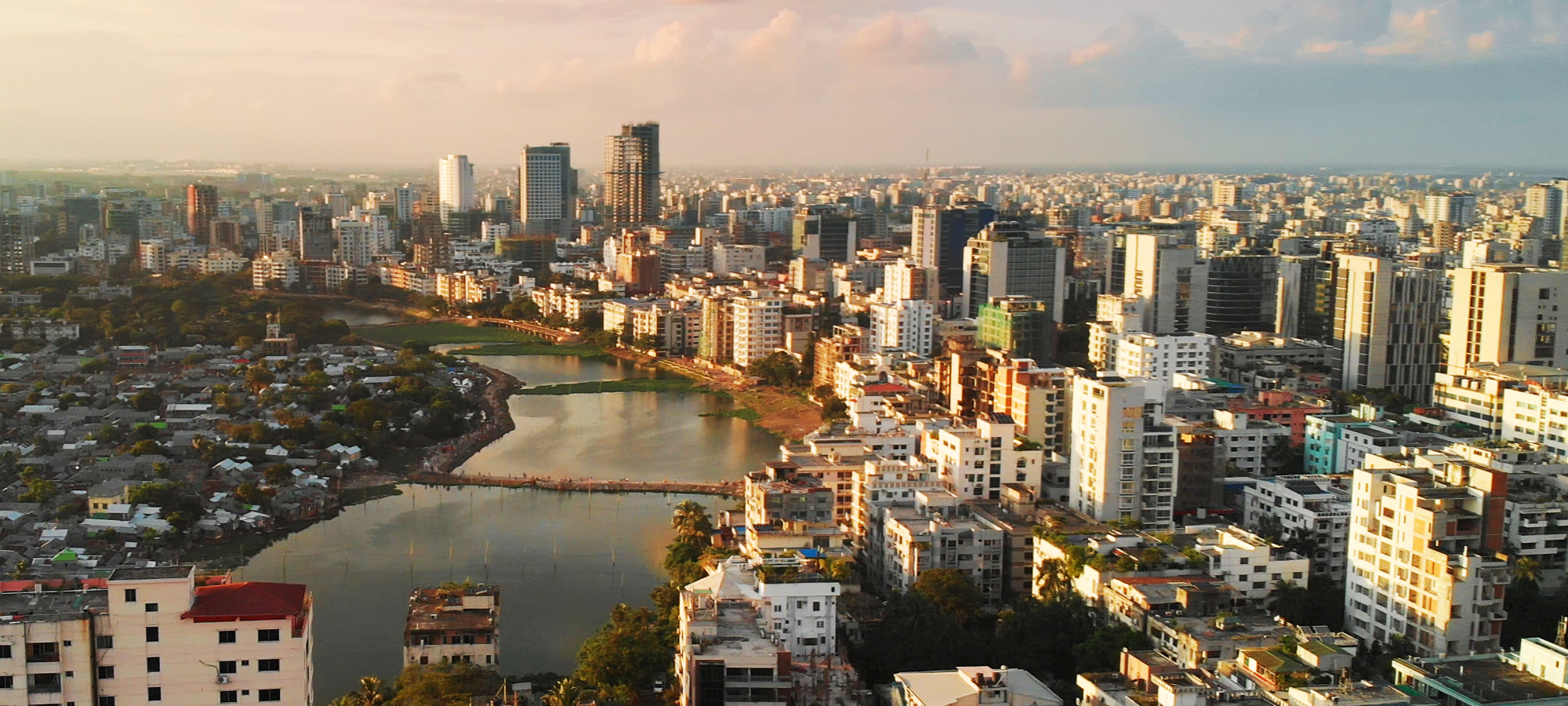
“We didn’t have the international competitive bidding know-how of a major company, so neither I nor anyone else in the company knew what the procedure was. We started by learning each step one at a time.” (Mr. Imaizumi)
What is international competitive bidding? What are the bidding conditions? What type of gas meter is required? The company was starting out from square one, and they had to figure out each task one-by-one through trial and error. While repeatedly forming their ideas into products and documents, they slowly managed to make their way toward submitting a bid. All they could do was put forth their best effort and then wait for fate to decide. But the reply that reached to company was far too cruel.
 Men who don’t know when to give up
Men who don’t know when to give up
The company had been disqualified due to flaws in their paperwork. They had failed to learn a basic rule of bidding – the representative’s signature is required on every page of every document submitted. It was the company’s first bid, and no one would tell them how to do it, but this was of course no excuse. When it comes to infrastructure projects in developing countries, it is often said that the one to successfully seize the initial opportunity holds supremacy thereafter. A manager at the local public gas corporation had told Helios Holding, “If you miss this opportunity, it will never come again.” Yet, the curtain had closed on the company all too soon.
“If it had been a technical problem, we might have been able to recover, but it was a more fundamental problem than that. I personally didn’t think there was any way we could have rallied again after that.” (Mr. Imaizumi)
While local related parties, domestic partners, and even Mr. Imaizumi himself were at a loss for what to do, there was one man who had not yet given up – President Onoda. Mr. Onoda visited every connection he could ask both in Japan and in Bangladesh in an attempt to somehow rally. Upon seeing that, a certain development consultant advised him to turn to JICA for help. Out of desperation, he rushed to JICA, but they too completely refused to help. Seeing Mr. Onoda desperately running around, some people even began to tease him, calling it a “daring attempt by a towel seller.”
“Mr. Onoda’s weapons were his ability to take action, his decisiveness, and his reluctance to give up. It was the same when he was going around visiting gas meter manufacturers. Even though he knows people won’t fully engage with him, he’s able to just keep boldly pushing forward.” (Mr. Imaizumi)
During this period as well, Mr. Imaizumi continued to support Mr. Onoda from back in Japan. He prepared documents in English explaining the superiority of Japanese gas meters. And after receiving feedback from local parties in Bangladesh, he would acquire new information in Japan and prepare new documents. He continued to provide thorough support day after day as Mr. Onoda’s right-hand man.
Another supporter was the previously-mentioned Mr. Malik, who had connections even among the Bangladeshi upper class. He continued to gradually gather support for the company, such as by obtaining letters of recommendation for Helios Holding from local gas companies, managers at various government agencies, and the minister of Power, Energy and Mineral Resources.
Mr. Onoda visited JICA from Japan nearly every month carrying “gifts” prepared in Japan. These repeated efforts ultimately deepened the level of trust in him and understanding within JICA.
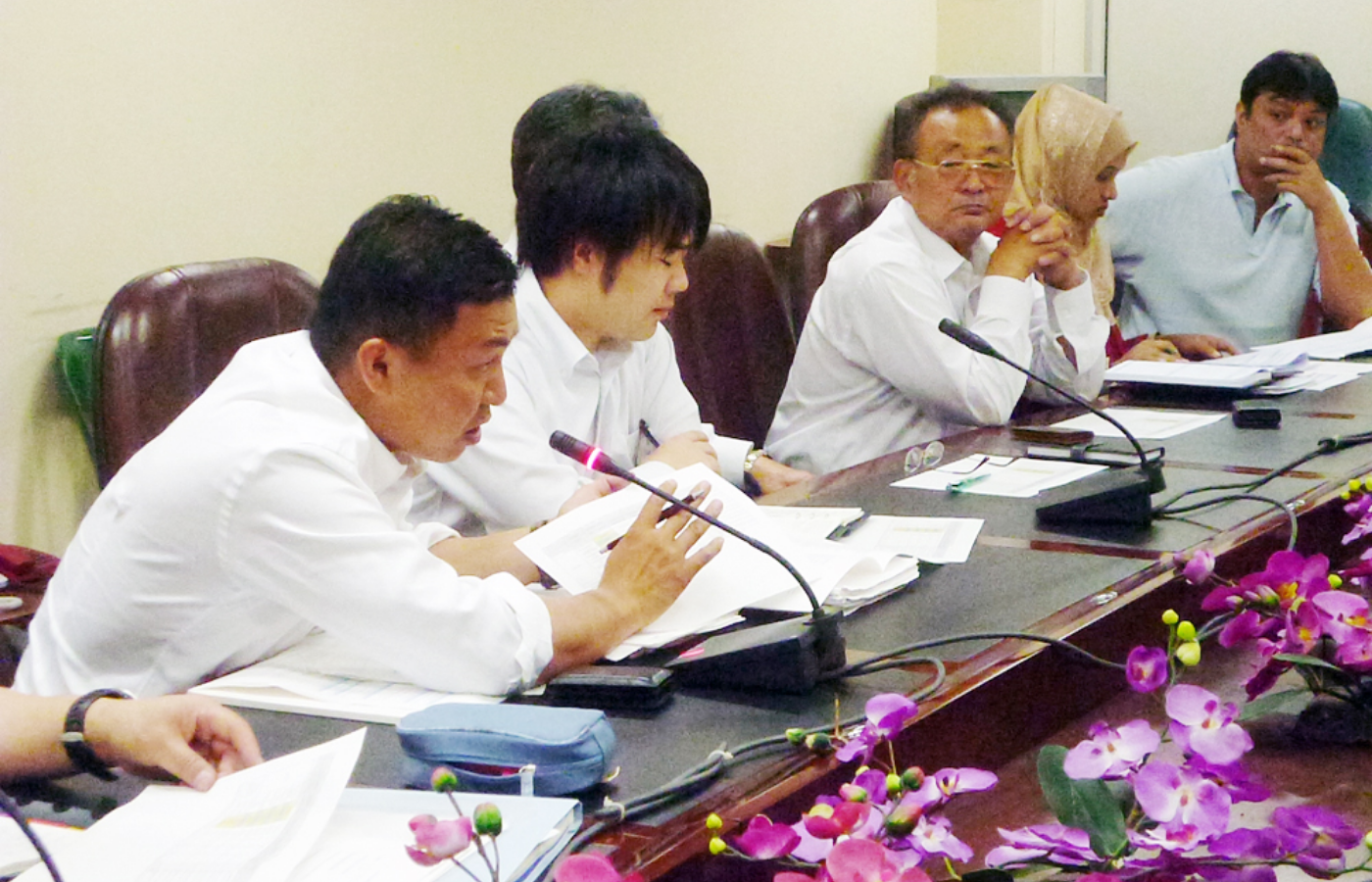
 The key to reversing the situation was Japanese technical prowess
The key to reversing the situation was Japanese technical prowess
Just then, Helios Holding was blessed with an unexpected tailwind. A large number of the third-party pre-paid gas meters used in the Asian Development Bank’s pilot project malfunctioned. As Bangladesh is a developing country, there are many unpaved roads, and even urban areas contain large amounts of airborne dust. The country also frequently experiences squalls, a type of storm unique to tropical regions. Dust and rain were causing malfunctions by seeping in through the gas meters’ pre-paid card insertion slots. As a result, the pilot project ended without progressing to full-scale introduction.
“Basically, this meant that, if we could solve this problem, we still had a chance. In terms of technical capabilities, our Japanese-made gas meters were unbeatable, so we decided to rally at this point.” (Mr. Imaizumi)
This desire also resonated with JICA, with which the company had gradually built up a relationship of trust. The problem JICA was facing at the time was that Japanese companies were being overwhelmed by foreign companies in international competitive bidding on ODA projects, such as yen loans. JICA was working to create Japanese-led ODA projects using Japanese companies. With the full-fledged support of JICA, who held the same objective, Helios Holding set its sights on the Natural Gas Efficiency Project (to be determined via international competitive bidding), which involved a yen loan.
What Helios Holding had zeroed in on was a contactless payment method using IC cards like those used by Suica and FeliCa in Japan.
If this technology were incorporated into gas meters, it would eliminate the need for card insertion slots, which would prevent dust and rain from entering and greatly reduce the risk of malfunction. Other features unique to gas meters manufactured in Japan were also incorporated into the specifications, including a function that shuts off gas flow when seismic activity is detected, which became mandatory in the wake of the Great Hanshin-Awaji Earthquake, a function that shuts off leaks when a gas leak is detected, and a function that shuts off gas flow after a long period of usage as a preventative measure in case someone forgets to turn off a gas burner, and a battery that operated continuously for ten years without replacement. The company was able to differentiate these gas meters from other countries’ products through superior technological capabilities. In addition, JICA conducted a trial installation of 200 units in Bangladesh by outsourcing the work to Helios Holding. Having local residents actually use the products showed them how well Japanese-made gas meters perform and thoroughly conveyed their superiority.
“If we were to go head-to-head, in terms of company scale, we wouldn’t be able to compete with major companies around the world. And in terms of price, we can’t compete with Chinese manufacturers. However, when it comes to technological capabilities, we are unbeatable. We focused all of our efforts on getting local gas companies to understand that these specifications only possible using Japanese gas meters.” (Mr. Imaizumi)
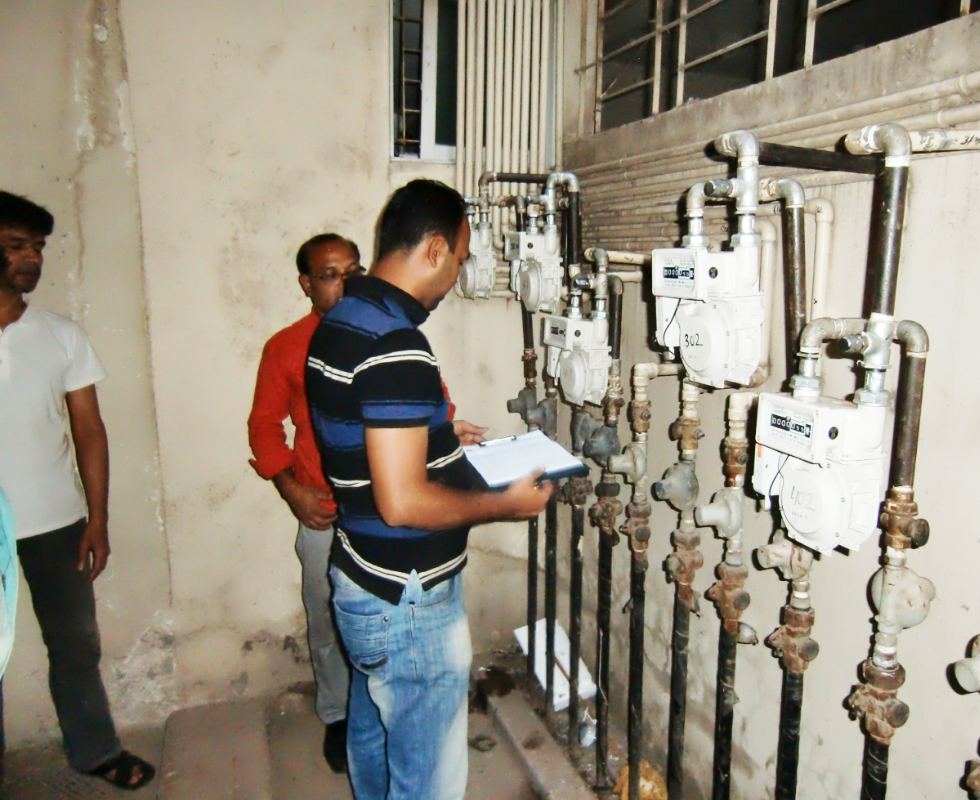
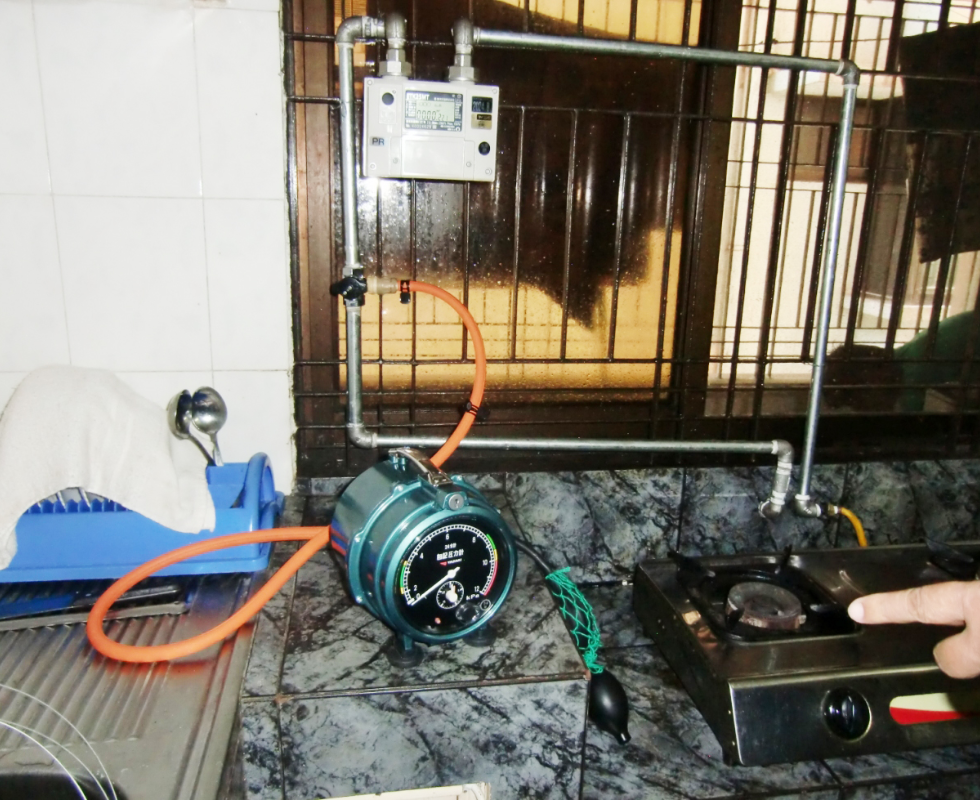
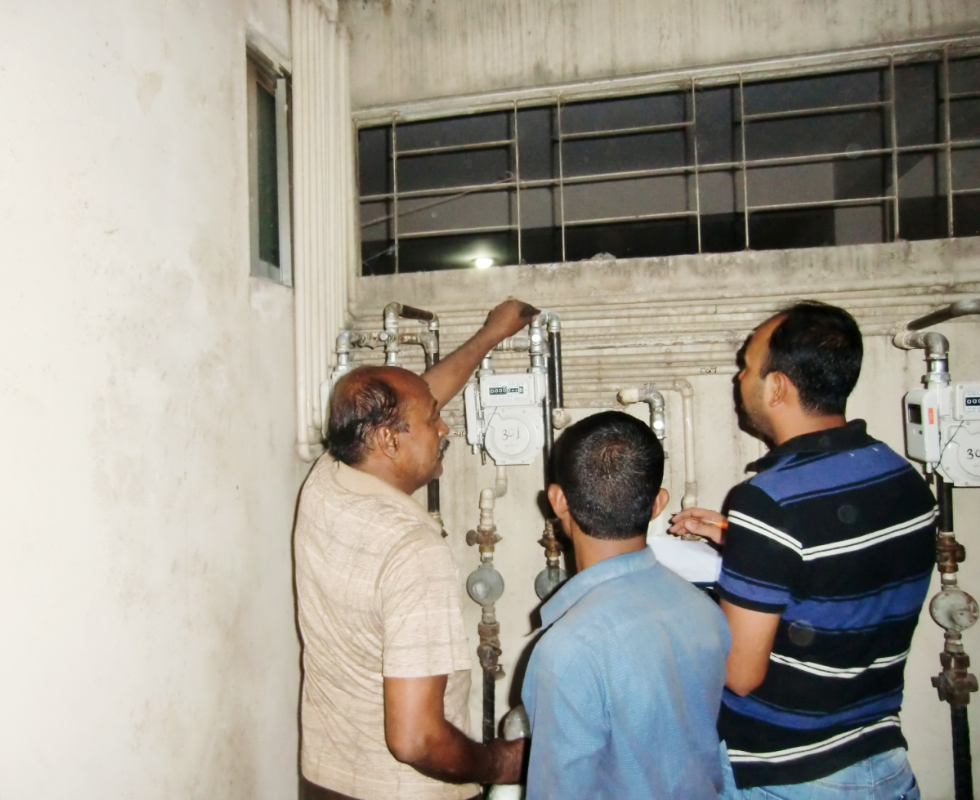
Last time, the company was disqualified due to flaws in its paperwork, but learning from this mistake, the company naturally made every effort to determine all of the bidding conditions. Unlike before when they prepared everything entirely on their own, the company had acquired a large number of allies over the preceding few years, including JICA staff members and consultants. Mr. Imaizumi completed the bidding documents with all of his heart and soul. However, at that time, he had actually already decided to resign from Helios Holding.
 Joyful voices heard at a distance
Joyful voices heard at a distance
“I was resigning for family reasons. Up until that point, I too had frequently gone on business trips to Bangladesh on behalf of Mr. Onoda. But a situation developed that would prevent me from leaving Japan. Thankfully, Mr. Onoda had allowed me to stay behind a number of times, but I felt that someone who can’t go overseas shouldn’t really be involved in a job like this. So, I resigned as soon as I completed the bidding documents.” (Mr. Imaizumi)
It was a while later that Mr. Imaizumi heard from Mr. Onoda that the bid had been successful. It marked the first such achievement by a Japanese small-to-medium-sized company. He was informed that all of the remaining employees were overjoyed, and that even JICA had praised the company for achieving a ‘come-from-behind home run.’
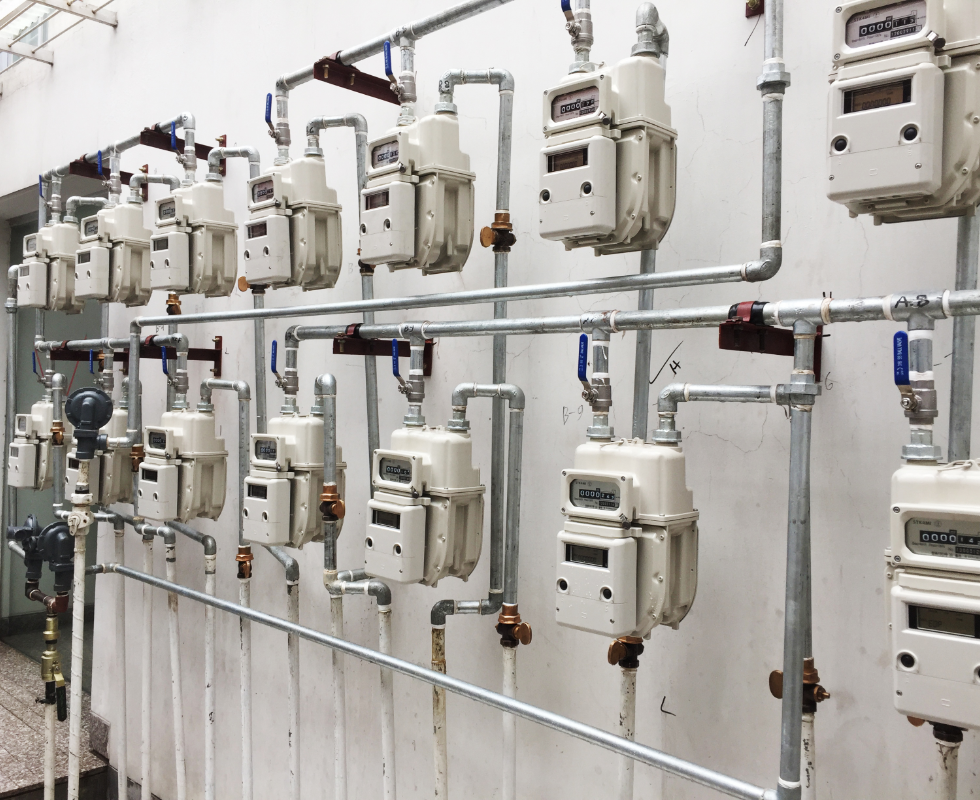
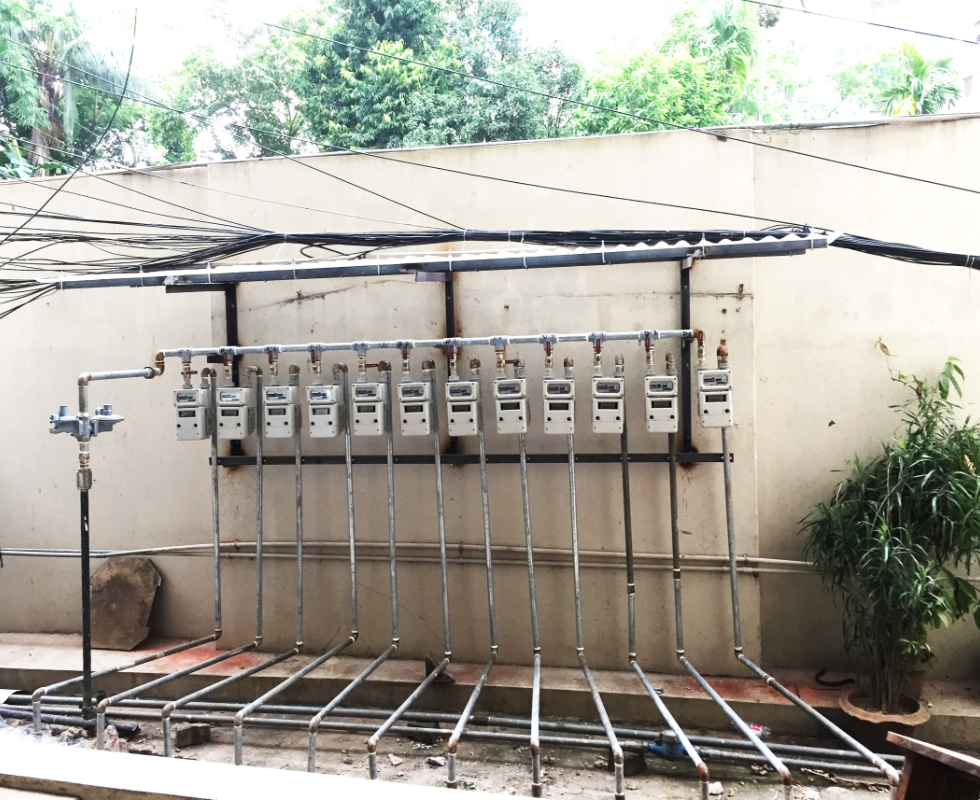
Later, Mr. Imaizumi got a job handling employee insurance matters at an automobile parts-related company in his home prefecture of Aichi.
Mr. Onoda’s reluctance to give up, however, had not changed. “Mr. Onoda continued to contact me even after I had resigned. He would say, ‘We won the bid! We’re going to be really busy from now on! Hurry up and come back to us! You can work exclusively in Japan. This is definitely the best job for you.’ I was really grateful that he showed so much concern for someone who had previously quit.” (Mr. Imaizumi)
Mr. Imaizumi was one of the few companions who had supported Mr. Onoda during his most difficult period when no one else would side with him. The trust that Mr. Onoda had in Mr. Imaizumi never once waivered. After a gap of just under two years, Mr. Imaizumi returned to Helios Holding.
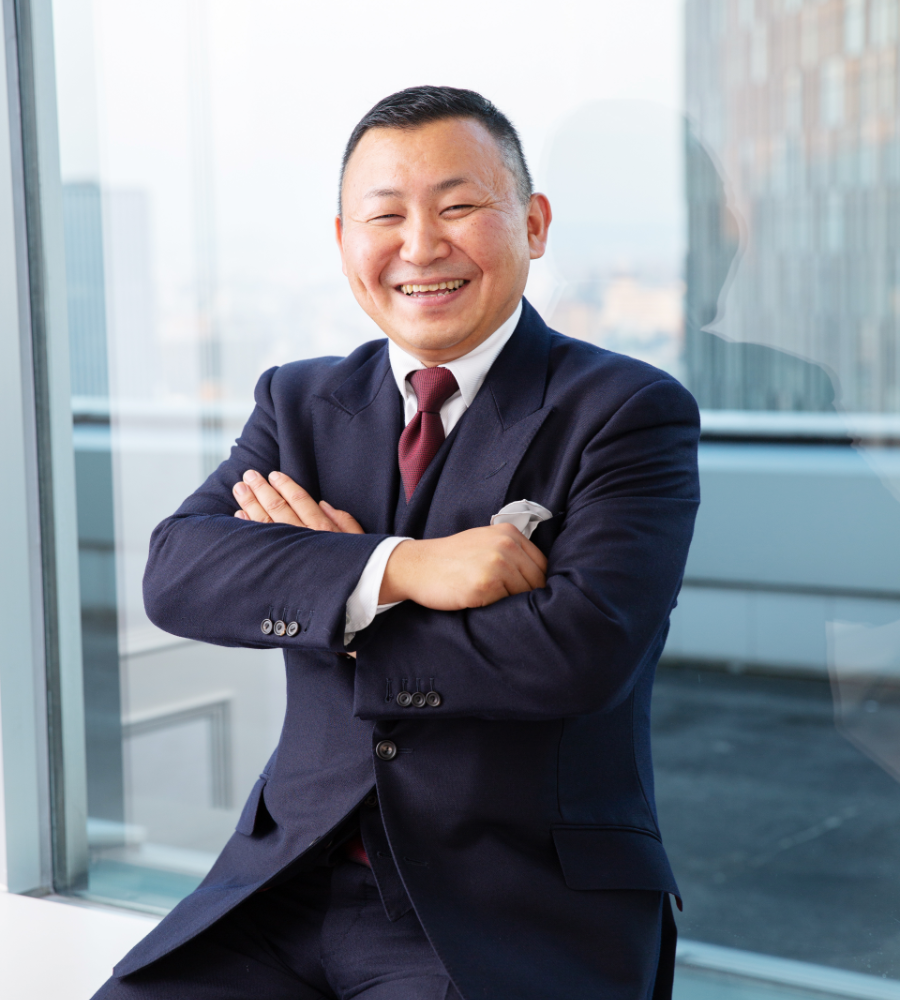
 Fifth year results and tenth year status
Fifth year results and tenth year status
It has been five years since Helios Holding received the order for the Natural Gas Efficiency Program using a yen loan. Bangladesh has achieved a 40% reduction in gas consumption compared to before. Switching gas usage fees from a flat monthly rate to a system in which users pre-pay for the amount they will use resulted in a significant reduction, and the system is also well received by the local residents.
“It definitely made me happy when local residents told me, ‘Japanese people not only build huge bridges and airports, they also support us in more detailed aspects of our lives.’” (Mr. Imaizumi)
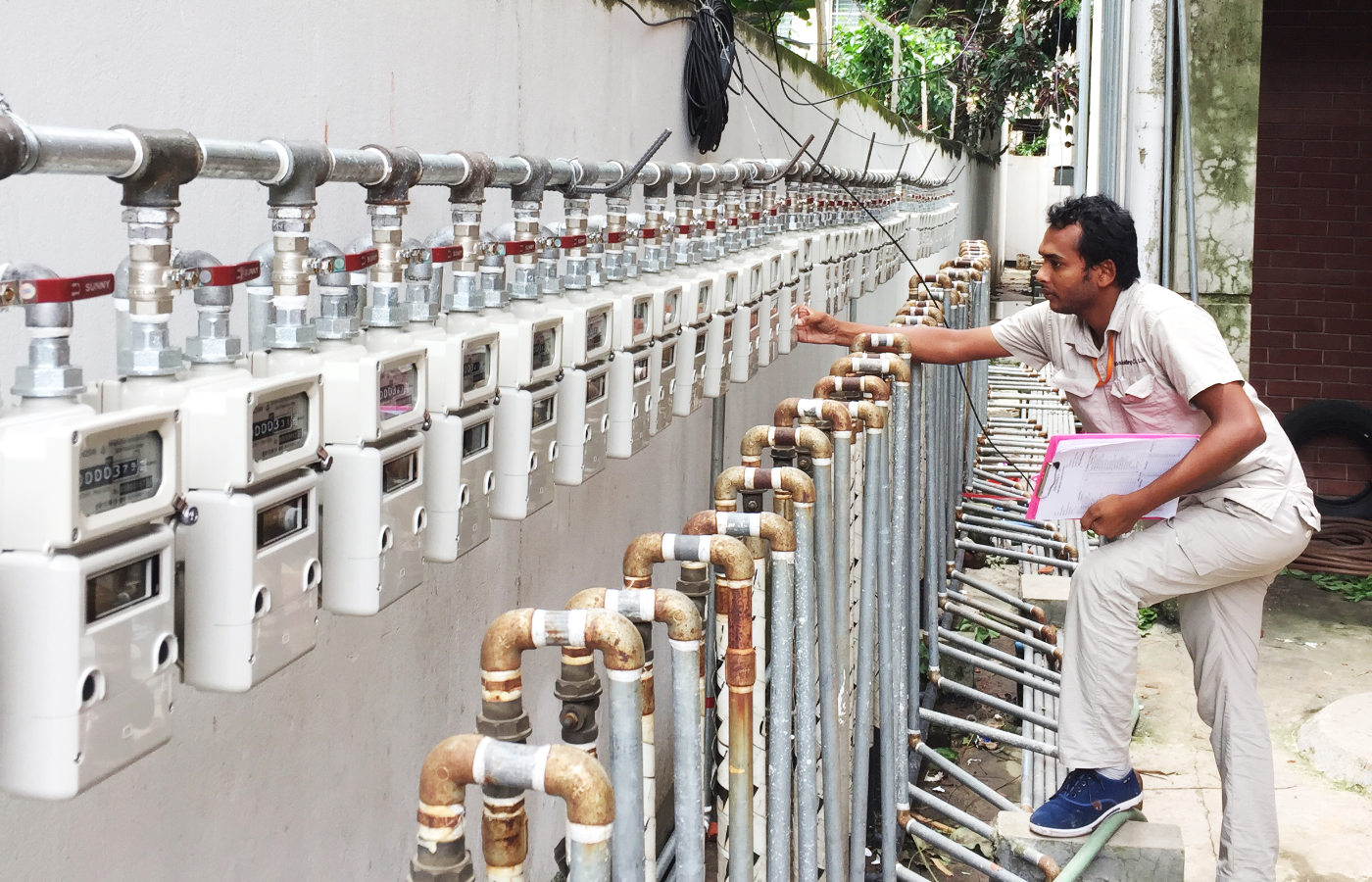
Locally hired Bangladeshi staff members are now in charge of installation. Up until being hired by the company, they had not known of the existence of gas meters or been aware of the danger of gas, but they learned Japanese work methods from Japanese contractors, and now, they have acquired advanced technical skills and an awareness of safety.
“At first, I was surprised at the huge difference between their senses of safety and time and ours, but at their core, the people of Bangladesh are very serious. They did their best to learn the job with a positive attitude, and now, they work under their own judgement. I can leave the job to them with peace of mind. I like this country and its people, and I want to contribute even more. There are as many as four million households where we still haven’t installed a gas meter, so I want to continue expanding further and further.” (Mr. Imaizumi)
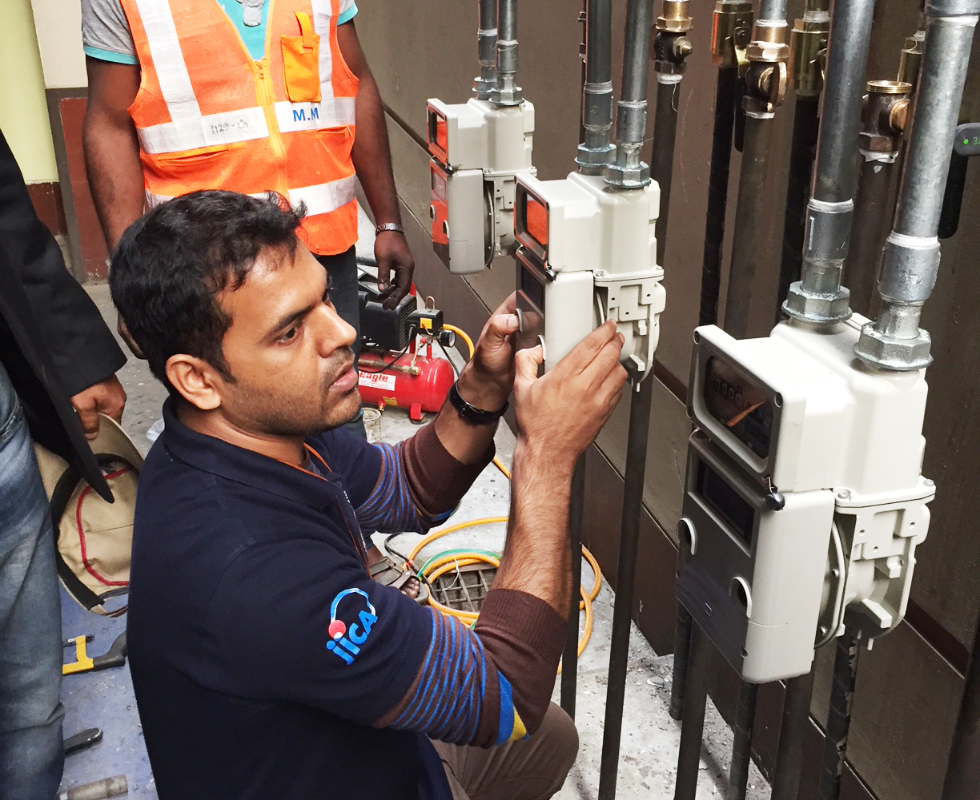
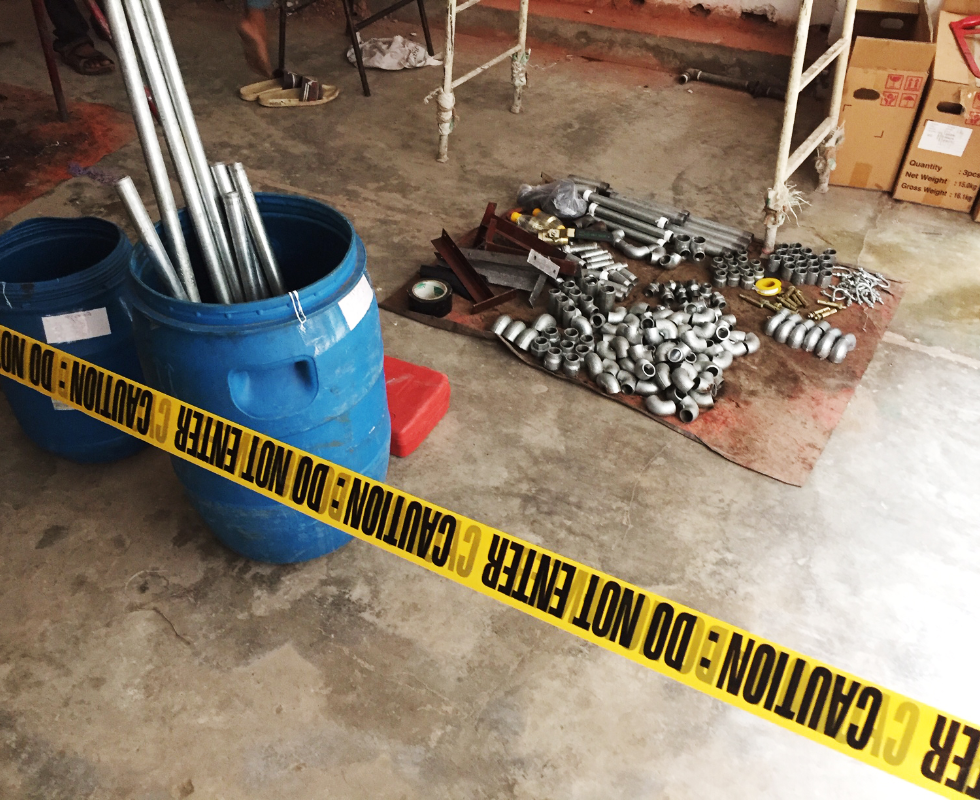
It has been roughly ten years since Helios Holding entered the overseas infrastructure business. Although the company used to have so few employees that they could be counted on one hand, it now has more than 150 employees both inside and outside of Japan. Mr. Imaizumi, who was a new employee at the time, is stationed in Bangladesh as an executive officer and as general manager of the International Business Department. He has been given control at the forefront of the overseas infrastructure business that Mr. Onoda was once in charge of.
Finally, when asked about the factors that led to the success of this project, Mr. Imaizumi replied as follows.
“I’m imitating Mr. Onoda, but it was because we simply didn’t give up. When everyone was saying it was impossible, seeing Mr. Onoda refuse to quit gave me personally the motivation to accomplish it as well. As a result, the success of the project in Bangladesh gave us a massive boost in confidence, and not giving up has taken root as a part of our corporate culture.” (Mr. Imaizumi)
In February of 2021, Helios Holding Co., Ltd. changed its name to ONODA Co., Ltd. Currently, the company is promoting installation of pre-paid gas meters in Indonesia, farther across the ocean from Bangladesh, and in Mexico, on the other side of the world.
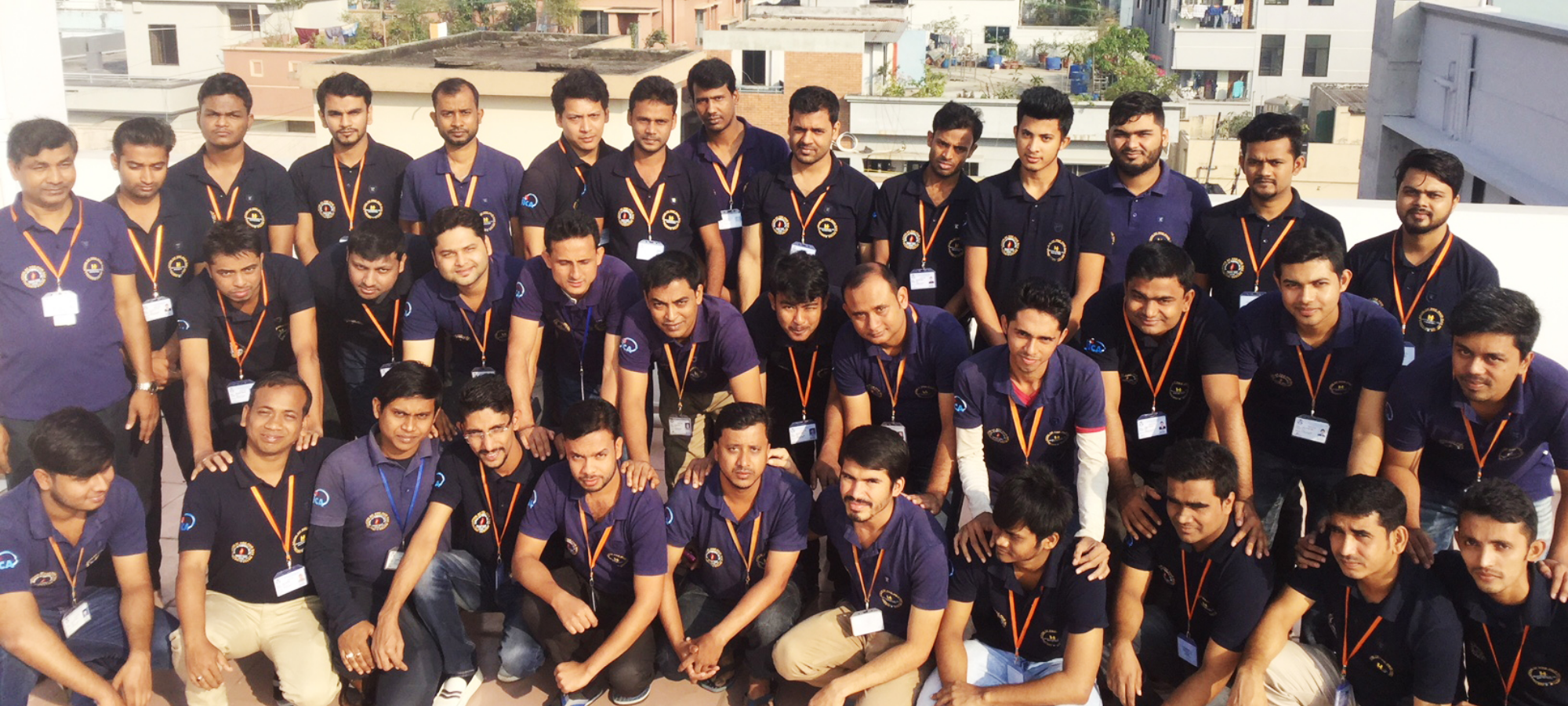
-
-
Country:Bangladesh
Name and Contents of the Project:Prepaid gas meter installation for TGTDCL
Procuring Entity:Titas Gas Transmission & Distribution Company Limited (TGTDCL)
Contract Amount:5.4 billion yen
Construction Period:March 2017〜March 2020
Remark:Main contractorCountry:Bangladesh
Name and Contents of the Project:Prepaid gas meter installation for KGDCL
Procuring Entity:Karnaphuli Gas Distribution Company Limited (KGDCL)
Contract Amount:1.6 billion yen
Construction Period:January 2017〜December 2019
Remark:Main contractor
